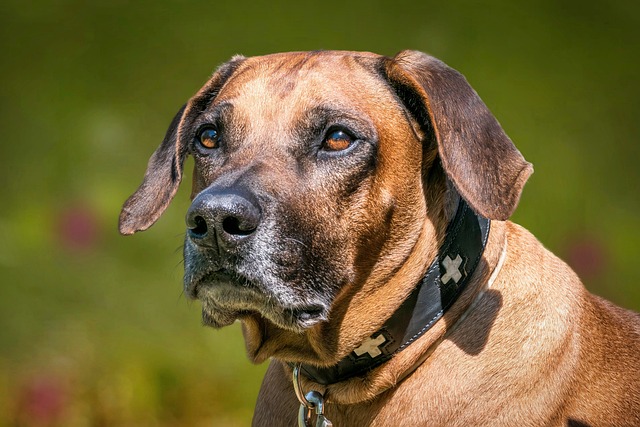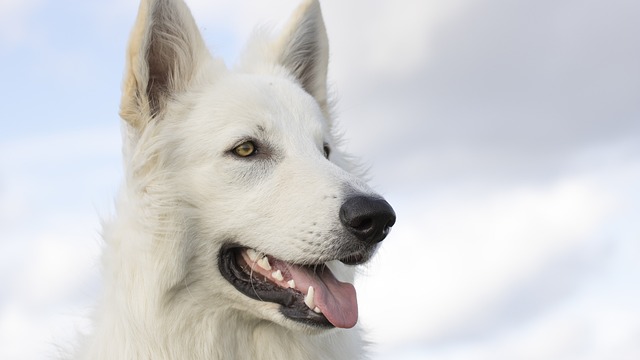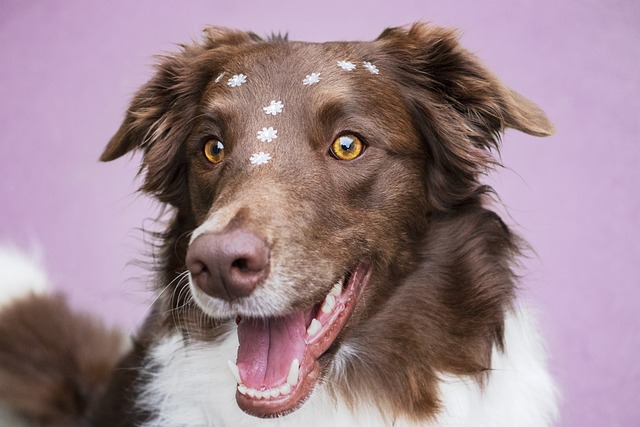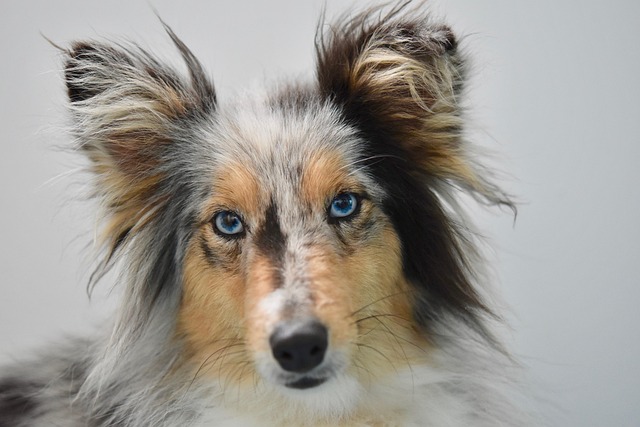When we joyfully welcome a dog into our home, it's like having a little angel that brings endless joy and warmth to our lives. It will rush towards you enthusiastically when you get home, rub its wet nose against you, and lick your hands with its soft tongue. At that moment, all the fatigue of the day fades away. However, as the days of getting along increase, the dog's health problems become the things we care about the most. Just like humans, dogs face various health challenges during their growth. Understanding these common health problems is like holding an umbrella for the dog's health, enabling us to better protect them.
Skin diseases are one of the common health problems for dogs. A dog's skin is relatively sensitive, especially for those with thick fur. In the hot and humid summer, if a dog's fur is not dried in time after playing outdoors, bacteria and fungi are likely to multiply. These bacteria and fungi reproduce in large numbers on the skin, causing symptoms such as skin itching, hair loss, and red spots. You will see the dog constantly scratching its body with its paws. The originally smooth and supple fur becomes rough and messy, and even patches of bald spots may appear. Seeing the dog suffering, as its owner, our hearts are filled with distress. To prevent skin diseases, we should keep the dog's living environment dry and clean, bathe it regularly, and choose a pet shampoo suitable for its skin type. At the same time, we should avoid the dog coming into contact with substances that may cause allergies, such as certain plants and cleaning agents.
 Gastrointestinal problems are also a major problem that troubles dogs. A dog's gastrointestinal tract is relatively fragile, and even minor changes in diet can cause discomfort. Sometimes, due to gluttony, a dog may accidentally eat too much food or something that is not suitable for it, such as chocolate or onions, and then experience symptoms of vomiting and diarrhea. They will lie listlessly on the ground, no longer as lively and active as usual. Gastrointestinal problems not only make the dog physically uncomfortable but also affect its nutrient absorption, and thus its growth and development. To take care of the dog's gastrointestinal tract, we should provide it with a nutritionally balanced and easily digestible diet, feed it regularly and in appropriate amounts, and avoid overfeeding. If the dog shows symptoms of gastrointestinal discomfort, we should adjust its diet in time and take it to the veterinarian if necessary.
Gastrointestinal problems are also a major problem that troubles dogs. A dog's gastrointestinal tract is relatively fragile, and even minor changes in diet can cause discomfort. Sometimes, due to gluttony, a dog may accidentally eat too much food or something that is not suitable for it, such as chocolate or onions, and then experience symptoms of vomiting and diarrhea. They will lie listlessly on the ground, no longer as lively and active as usual. Gastrointestinal problems not only make the dog physically uncomfortable but also affect its nutrient absorption, and thus its growth and development. To take care of the dog's gastrointestinal tract, we should provide it with a nutritionally balanced and easily digestible diet, feed it regularly and in appropriate amounts, and avoid overfeeding. If the dog shows symptoms of gastrointestinal discomfort, we should adjust its diet in time and take it to the veterinarian if necessary.
Oral diseases are also quite common in dogs. If we don't pay attention to a dog's oral hygiene, food residues will remain between the teeth and gums, allowing bacteria to multiply and form dental plaque and tartar. These bacteria will erode the dog's teeth and gums, leading to bad breath, swollen and bleeding gums, and even tooth loosening and loss. When you have close interactions with the dog, that unpleasant breath can be a bit overwhelming, and the dog will also be affected in eating and playing due to oral pain. To prevent oral diseases, we should develop the habit of regularly brushing the dog's teeth. We can use pet - specific toothpaste and toothbrushes. Start to let the dog get used to the process of tooth - brushing from a young age. In addition to brushing teeth, we can also provide the dog with some dental bones or chew toys to help it clean its teeth and reduce bad breath.
In addition, joint problems are also a potential threat to a dog's health, especially for some large - breed dogs and senior dogs. As the dog ages, the joint cartilage gradually wears out, and the secretion of synovial fluid decreases, leading to joint diseases such as arthritis. Dogs with joint diseases will become slow in movement, and actions such as going up and down stairs and jumping will become difficult. They are no longer as fond of running and playing as before and more often lie quietly in the corner. Seeing the once - energetic dog become disabled in movement, our hearts are filled with worry. To protect the dog's joint health, we can provide it with foods or health products rich in glucosamine and chondroitin to help repair and protect the joint cartilage. At the same time, we should avoid the dog from over - exercising, especially from running and jumping on hard ground for a long time.
Dogs are the most loyal partners in our lives. They give us unconditional love and companionship. Understanding their common health problems and taking effective preventive and treatment measures is the responsibility we, as owners, should fulfill. Every dog deserves to be treated tenderly. Let's use love and care to safeguard their health. If you have any other questions about dog health care, feel free to communicate with me at any time. Let's work together to create a healthy and happy living environment for dogs.

 Gastrointestinal problems are also a major problem that troubles dogs. A dog's gastrointestinal tract is relatively fragile, and even minor changes in diet can cause discomfort. Sometimes, due to gluttony, a dog may accidentally eat too much food or something that is not suitable for it, such as chocolate or onions, and then experience symptoms of vomiting and diarrhea. They will lie listlessly on the ground, no longer as lively and active as usual. Gastrointestinal problems not only make the dog physically uncomfortable but also affect its nutrient absorption, and thus its growth and development. To take care of the dog's gastrointestinal tract, we should provide it with a nutritionally balanced and easily digestible diet, feed it regularly and in appropriate amounts, and avoid overfeeding. If the dog shows symptoms of gastrointestinal discomfort, we should adjust its diet in time and take it to the veterinarian if necessary.
Gastrointestinal problems are also a major problem that troubles dogs. A dog's gastrointestinal tract is relatively fragile, and even minor changes in diet can cause discomfort. Sometimes, due to gluttony, a dog may accidentally eat too much food or something that is not suitable for it, such as chocolate or onions, and then experience symptoms of vomiting and diarrhea. They will lie listlessly on the ground, no longer as lively and active as usual. Gastrointestinal problems not only make the dog physically uncomfortable but also affect its nutrient absorption, and thus its growth and development. To take care of the dog's gastrointestinal tract, we should provide it with a nutritionally balanced and easily digestible diet, feed it regularly and in appropriate amounts, and avoid overfeeding. If the dog shows symptoms of gastrointestinal discomfort, we should adjust its diet in time and take it to the veterinarian if necessary.



